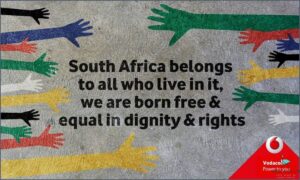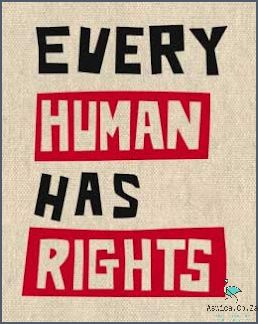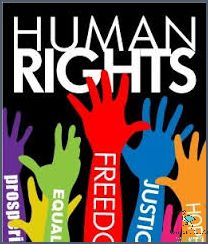
Human rights violations in South Africa have a long history, with the most well-known being the Apartheid system that denied basic rights to black citizens for decades. Since the end of Apartheid, when the African National Congress (ANC) were elected to power in 1994, South Africa has continued to face serious human rights violations. These include torture, cruel, inhuman and degrading treatment, forced evictions, police brutality and discrimination against LGBTI people. In addition, South Africa has high levels of poverty, unemployment and inequality, which has led to a rise in violent crime and gang-related activity, as well as human trafficking and gender-based violence. As a result, the South African government has implemented various measures, such as the National Action Plan to combat human rights violations, to ensure the protection of human rights in the country.
Contents
What Is Violation Of Human Rights In South Africa
Violation of human rights in South Africa is a serious problem that affects the lives of many people. The South African government has made progress in promoting and protecting human rights, but there remain significant challenges. For example, the government has failed to address the high levels of poverty and inequality, which often lead to a lack of access to basic services such as healthcare, housing, and education. Discrimination still exists in the form of racial and gender-based violence, as well as unequal access to justice and employment opportunities. In addition, South Africa has extremely high levels of gender-based violence, with women facing disproportionate levels of violence. These are just some of the many issues that demonstrate the need for the South African government to take action to protect and promote human rights.
History of Violation of Human Rights in South Africa
The history of violation of human rights in South Africa is one that stretches back centuries, and has gone through various iterations of oppression and marginalization. From the early colonial period to the present, South Africa has seen a range of human rights violations, with the most egregious violations occurring during the apartheid era.
The colonial period saw the gradual subjugation of native South Africans by Dutch, British, and Boer settlers. The settlers sought to gain control of resources and land, and in the process, discriminated against, and oppressed the native population. This included restrictions on movement and access to resources, as well as a systemic denial of basic human rights.

The apartheid era was one of the most oppressive periods in the history of South Africa. The National Party, which came to power in 1948, enacted a range of laws that segregated and oppressed the black population. This included the Population Registration Act, which classified people into racial categories; the Group Areas Act, which restricted movement and access to resources; the Bantu Education Act, which established the inferiority of the black population; and the Land Act, which stripped black South Africans of their land. These laws, and the oppressive system they created, led to widespread human rights violations, including the torture, detention, and killing of activists, and the deprivation of basic economic and social rights.
Despite the end of apartheid in 1994, South Africa continues to face human rights challenges. In recent years, there has been an increase in xenophobic attacks against African immigrants, as well as police brutality directed against black South Africans. The government has also come under fire for its failure to address poverty and inequality, and for its inadequate response to the challenges posed by the HIV/AIDS epidemic.
The history of human rights violations in South Africa serves as a stark reminder of the importance of protecting and promoting human rights. It is essential that the government takes steps to ensure that individuals and groups are not discriminated against, and that all people are treated with dignity and respect. Only then can South Africa move forward and create a society that is truly free and equal.
Impact of Violation of Human Rights in South Africa
The violation of human rights in South Africa has had a profound impact on the country’s social, economic, and political state. The effects of these violations are felt by people of all ages, races, genders, and socioeconomic backgrounds. In South Africa, the privileged few have long enjoyed the benefits of a system that has enabled them to accumulate wealth and power while denying basic rights to the majority of the population.
The apartheid system, which was in place until the early 1990s, was the most egregious example of a system that violated the basic rights of the majority of South Africans. Under the apartheid system, black South Africans were denied the right to vote, to own land, to access quality education, and to participate in the political process. This system of racial segregation led to extreme poverty, unemployment, and human rights abuses.

The legacy of apartheid continues to be felt in South Africa today. While the country has made significant progress in creating a more just society, economic inequality, racial discrimination, and a lack of access to quality education remain major issues. These problems are exacerbated by the fact that many people living in South Africa lack the resources and knowledge to protect their rights.
The violation of human rights in South Africa has also had a profound effect on the country’s economic development. Without access to basic rights, the majority of South Africans are unable to participate in the economy, leading to high levels of poverty and unemployment. This has a ripple effect on the country’s growth and development, as it makes it difficult for the government to invest in infrastructure, education, and other public services.
The violation of human rights in South Africa is an ongoing problem that needs to be addressed. It is essential that the South African government takes steps to ensure that all citizens are able to access their basic rights. This includes providing access to quality education, investing in public services, and creating an environment where people can safely exercise their rights without fear of reprisal. Additionally, those who have violated human rights need to be held accountable for their actions. Only by addressing these issues can South Africa create a society in which all citizens are able to enjoy the same rights and opportunities.
Examples of Violation of Human Rights in South Africa
The South African government has been cited for numerous violations of human rights in the past. From the apartheid system to the current government, the country has been marked by a history of human rights abuses. In recent years, South Africa has made strides to protect its citizens and promote human rights, but there are still examples of violations that occur on a regular basis. Here are some of the most common examples of violations of human rights in South Africa.
1. Discrimination against LGBTQI+ people: Discrimination against LGBTQI+ people is still a major issue in South Africa, even though same-sex marriage is legal and discrimination based on sexual orientation is prohibited. LGBTQI+ people are still subject to discrimination in the workplace, education, housing, healthcare, and other areas.

2. Forced evictions: Forced eviction occurs when a person is removed from their home without their consent. This practice is often used to make way for large-scale development projects. In South Africa, this practice is especially common in informal settlements and rural areas, where people are often not given adequate notice before they are evicted.
3. Intimidation of human rights defenders: Human rights defenders in South Africa are often intimidated and harassed by the government, security forces, and other powerful entities. This can include surveillance, physical and verbal harassment, and threats of violence. This makes it difficult for human rights defenders to carry out their work.
4. Violence against women: Violence against women is sadly still very common in South Africa. This can include physical and sexual violence, as well as economic and psychological abuse. Women are disproportionately affected by violence in South Africa, and often face obstacles to accessing justice.
5. Lack of access to healthcare: Access to healthcare is still a major issue in South Africa. Many people living in rural areas have limited access to medical care, and those who do have access often have to pay high out-of-pocket costs. This can make it difficult for people to get the care they need.
These are just a few examples of the violations of human rights that still occur in South Africa. It is important for the government and civil society to continue to work to promote human rights and ensure that all people in South Africa have access to the rights and freedoms they are entitled to.
Conclusion
The South African government has been accused of violating human rights on a number of occasions. The most recent and notable instance was the Marikana massacre, in which 34 miners were killed by police. This event led to widespread condemnation of the government and its handling of the situation. Other instances of human rights violations in South Africa include the use of torture and inhuman treatment by the police, the use of forced evictions to displace communities, and the denial of basic services to impoverished communities.




